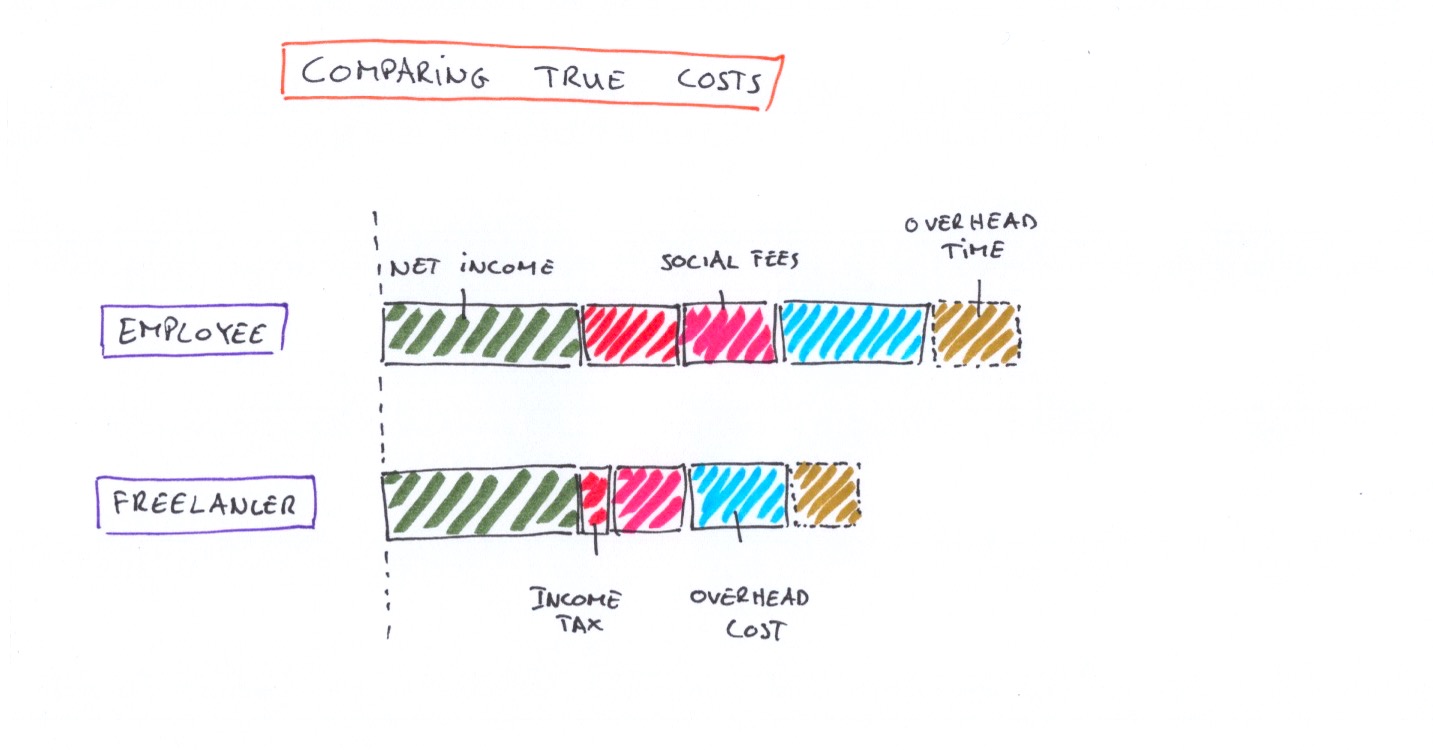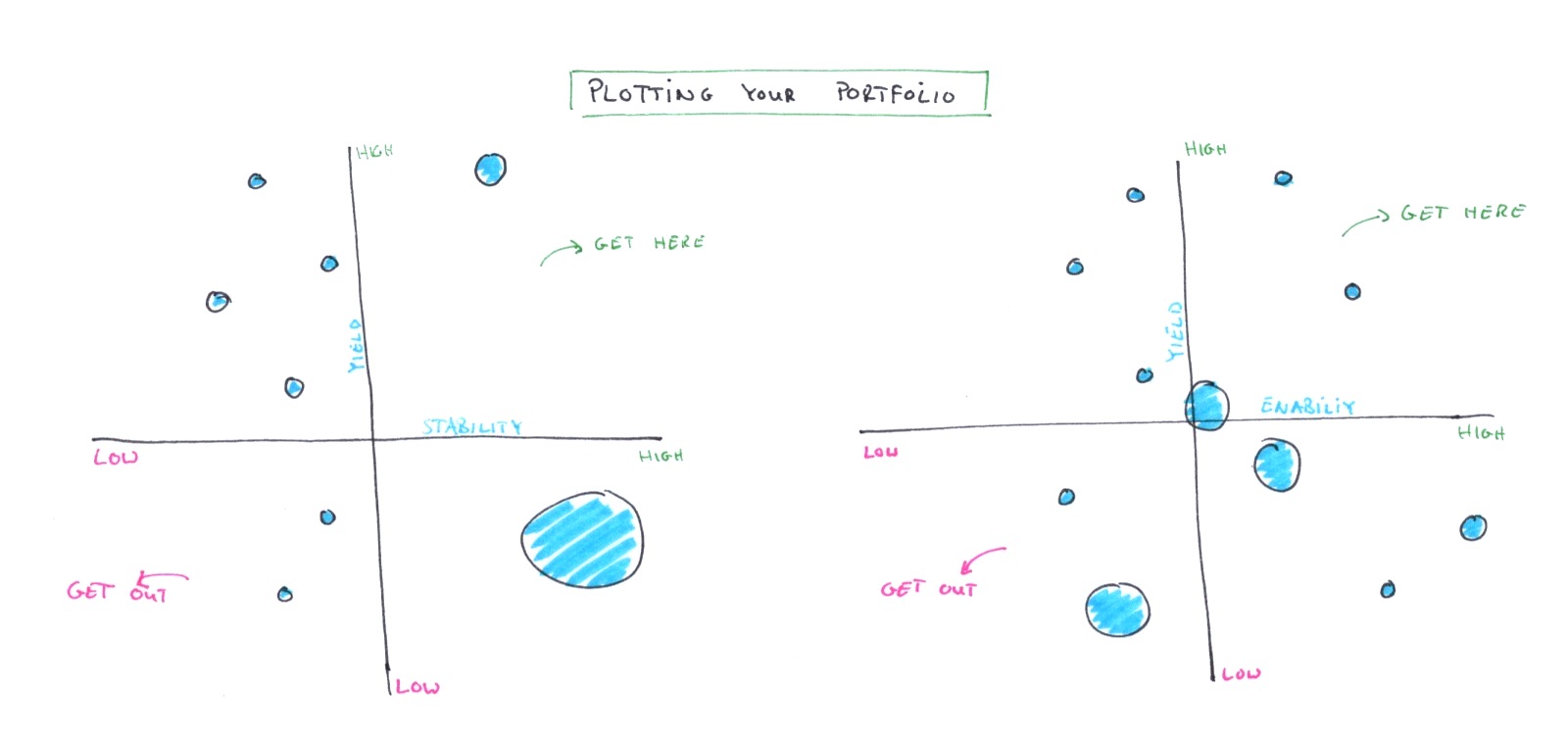

Should you ever work for free? (Pricing #5)
They will ask it. "Paid work will come!" "It's a great opportunity to show your work to potential clients!" How to deal with potential clients (and yourself!) when they ask you to work for free.

Pricing 4: How to Price based on Value and Perception.
A business works because it sells something at a price that is less than what it's worth to its clients. How do you base your prices on the value you deliver? What's the role of the client's perception of you in all of this?

Pricing 3: Why freelance fees aren't as high when you compare them with the true costs of employees.
You charge what per hour?? The outcry you get when you share how much you charge to people who work a regular job. But what if these fees aren't as high as they seem? What if we would compare them to the true costs to the employer of that person? If we add all the costs and calculate the costs per hour, the freelancer fees seem way more reasonable.

Pricing 2: How to figure out what your hourly rate should be.
There are roughly three ways to approach the price of your product. (1) Most logically is to base it on the value you deliver to the client. (2) To look at the price on the market for similar products. (3) And lastly, there is Cost-plus. To price your product or service based on what it costs you and put a margin on top of it.

Pricing 1: How much do you need to charge to earn your income goal?
Pricing is foundational to your business. You sell products. And products have a price. Now, what do you need to price in order to make your income goals? This posts breaks down exactly that.
It's the first part of a series on pricing. Going further in internal budgeting, value and perception, and whether you should ever work for free.
